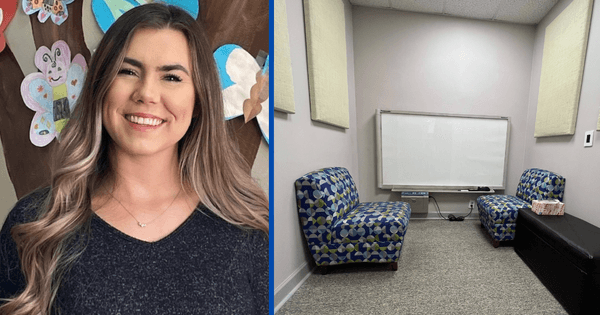
If you are reading this blog, and you know what the purpose of the Child Advocacy Center (CAC) is and what the role of a Forensic Interviewer (FIer) is. In my opinion, that makes you a part of the minority. It is rare to meet someone outside of work that knows what a CAC is or what a FIer does. When meeting new people, a common question I avoid is, “what do you do?” I have learned over the years; the topic of my profession can be quite the mood killer. People tend to react in three different ways. One, they abruptly change the conversation. Two, they share with me their past trauma or trauma of a loved one. Or three, my favorite, they ask questions to better understand the occupation. Here are some common questions I have been asked about being a Forensic Interviewer.
“What is a Forensic Interview (FI)?”
A FI is a recorded conversation between a trained professional and a child that is a victim of or witness to a violent crime. It is used to elicit details of a crime in an unbiased and child friendly manner. The goal is to assist a child in providing all the information they can remember about an event without retraumatizing them. Ultimately, I would then testify those details in court for the child.
“Do you use lie detectors? / Are you a mind reader?”
I am not trained in using a lie detector, nor am I properly trained in mind reading. I am trained in analyzing body language and how victims of a violent crime recall events. I am also trained in spotting barriers that make children reluctant to share certain details and how to overcome those barriers. At the end of an FI, I do have an expert opinion on what the child shared. However, I can never state if a disclosure, is true or false. I am not a direct witness to the incident and can only testify to what the child states to me.
“So, you see crime scenes?”
Often, people hear “forensic” and think of forensic examiners. They think of the crime scene with all the pieces of evidence tagged with a yellow, numbered marker. FIer does not analyze any physical evidence from a crime scene. FIs are not completed on site of a crime scene. It is best practice to have FI conducted in a safe, neutral location, such as a CAC.
“I bet you hear all sorts of crazy stories, what is the craziest you have dealt with?”
Every child I listen to shares their perspective on what they have been through. They are all equally impactful stories that are not to be shared for entertainment purposes.
“How do you become a forensic interviewer?”
You need to attend a forensic interviewing school. Typically, that is a one- or two-week intensive course. After completion you receive a certificate that allows you to conduct FIs. People usually have a degree in social work, psychology, or criminal justice.
“What is in it for you?”
I get to help children learn that they can talk about what happened. I get to be proud of the children that share their traumatic experience. The FI is often the first time a child discloses the details of what they been through. The child may have told a teacher that mom’s boyfriend touched them. But, in a forensic interview they are giving the details of where they were touched, with what they were touched, how they were touched, and more. It can be mentally draining for the child and the interviewer. But, when you hear the child state it feels like a weight has been lifted off their shoulders, or that they think you are a great listener, or they thank you…those are the moments I hold on to.
